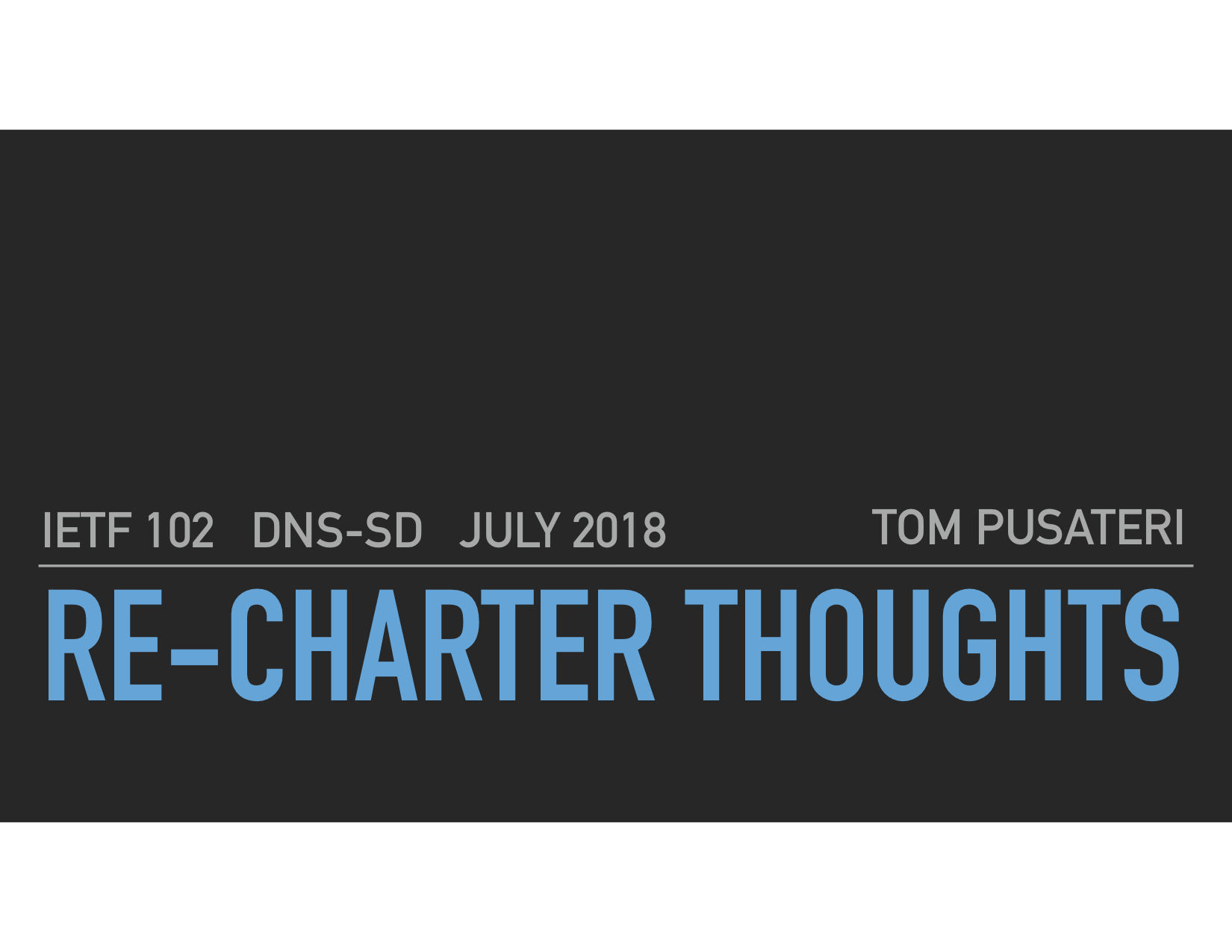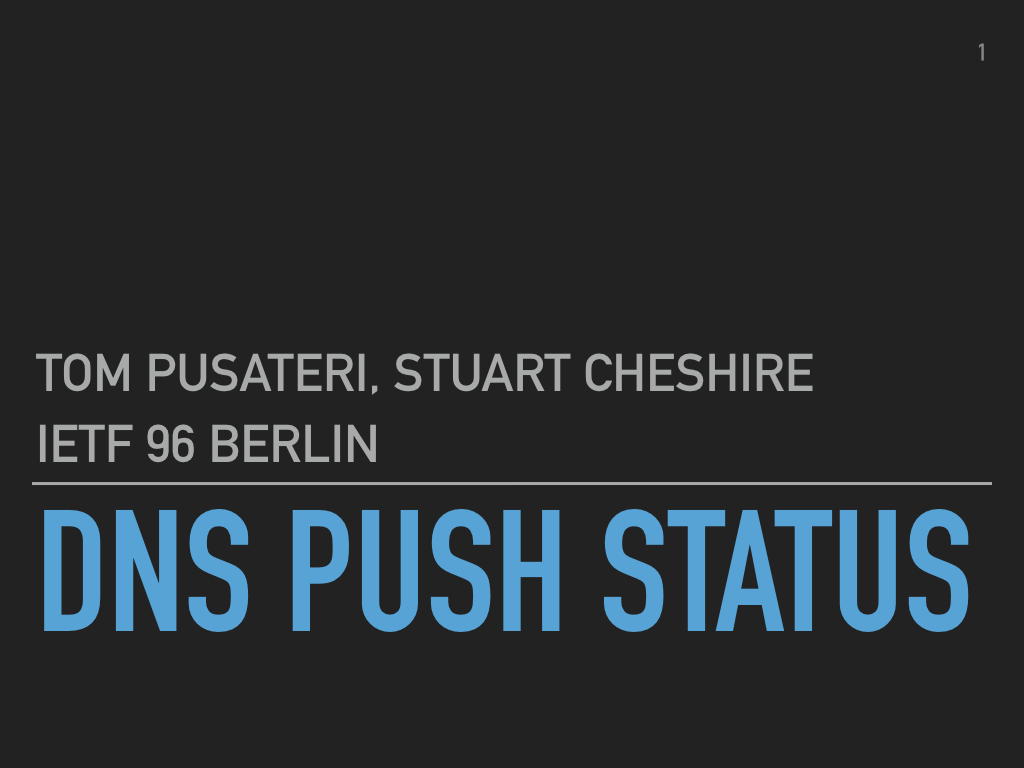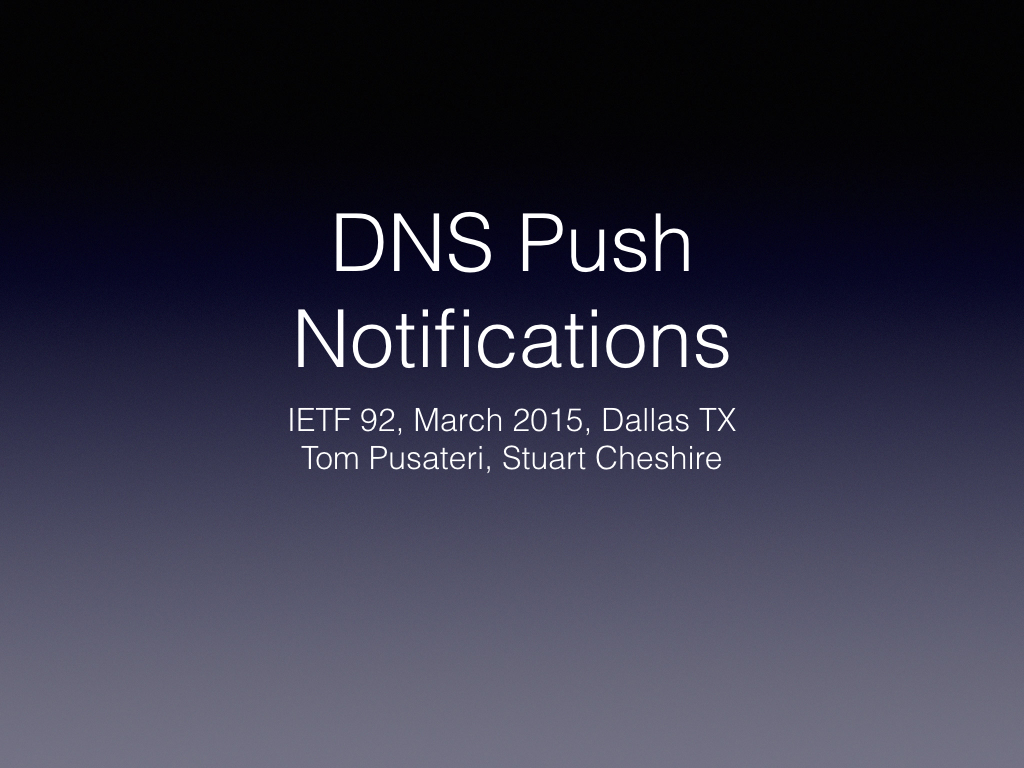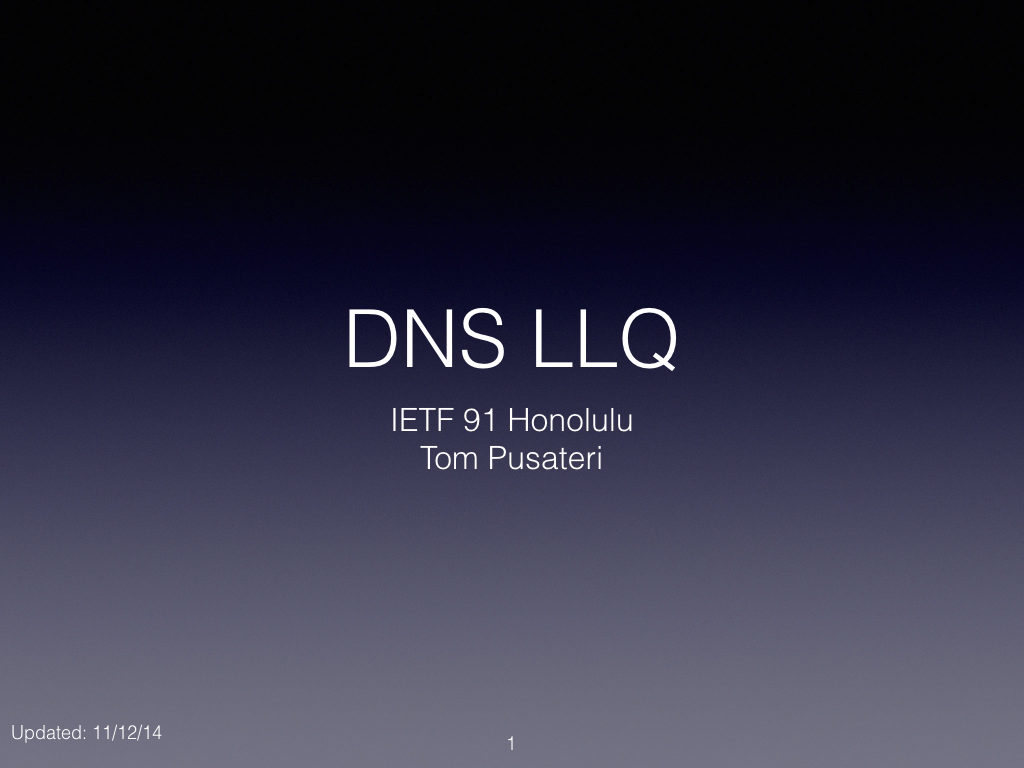Well-known DNS Server Reputation Service
While preparing for a talk I gave at IETF 102 in Montréal, I had an idea about establishing a reputation service for sharing trust about well-known public DNS servers. Sort of a wisdom-of-the-crowds attempt for clients and operating systems to bootstrap trust when learning about new public DNS servers. Trust is local and trust doesn't scale as Leif Johansson and Lucy Lynch once told me. So this is an attempt at conveying trust or more likely conveying the lack of trust.
The talk related to DHCP, which wasn't well received, but it's not clear how well the reputation service part was received. HTTPS has a form of a reputation service for identifying compromised certificates called Online Certificate Status Protocol (OCSP).
While public DNS servers also have certificates that could benefit from OCSP, the DNS reputation service I was proposing was more about the anwers returned by the DNS resolvers. Ideally, DNSSEC would be more widespread and the answers returned by a resolver could all be validated by the client. But clients don't normally do DNSSEC validation. They trust the resolvers to do it for them when asked. So, are resolvers returning the correct results? We hope so but how do you catch them if they aren't.
Imagine if you attach to a network that is a bad actor. The network operator gives you DNS resolvers to use over DHCP but they intend to log your DNS traffic and sell access to it. The only ones who know about this are the buyer and the seller and neither have an interest in letting you know.
Now, what if they return invalid results? You are trusting your resolver to give you accurate results. The only way you can be sure though is to do DNSSEC validation at the client.
So imagine if there was a registry, say at dnsprivacy.org, where users could report a public DNS server. The service could list their security practices, audit logs, third-party verification, etc to allow users to decide which DNS servers they trust. If a bad actor is found to be abusing its resolver data, others would immediately know.
If this is something you would like to see happen, contact me!
Update
Marek Vavruša made a great point on the DNSOP mailing list here. The network operator should be involved in this reputation service by pushing the list of its servers that it considers trustworthy. Then the clients can evaluate these servers.
more ...




